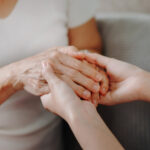Pandemic outbreak management: a behavioral science perspective
Pandemics are not new to the humankind, and the coronavirus is just the latest (and most probably not the last) of them. A considerable number of the pandemics were dealt with medically, through vaccination.1,2 This was the case for polio, smallpox, rubella, to name but few. These diseases had been killing great numbers of people and were terrifying perspective for people living as recently as the 1950’s or 60’s, yet now they are mostly unknown to most of the population.3
The number of infectious diseases that still have no cure is high and one of the most effective ways of dealing with them is to build barriers to their propagation. In most cases, these barriers imply the modification of people’s behavior.4
This is not an easy thing to do, and it depends on the nature of the disease:
- First, there are diseases transmittable through a specific behavior (ex. sexually transmitted diseases). In these cases, the key is to educate the general public about how to avoid the transmission of a disease (ex: “safe sex” campaigns associated with the distribution of condoms). Behavioral barriers are significant, but at least specific.5
- Diseases transmittable through universal, common behavior (such as coronavirus). In these cases, the most obvious response is the quarantine or isolation of the infected so that they do not spread the disease to others6. Both methods were widely used in the ancient times through the middle ages and continue to be used today.7
In both cases, the authorities may need to use techniques grounded in behavioral science to help the population make the right decisions or deter people from taking the wrong ones (like how to approach a potentially infected person). Has it always worked? Certainly not in all cases. Quarantine bans are regularly challenged by some people.8 But why?
First, every person has their own “rationality” and attitudes towards diseases. These attitudes are inevitably subject to bias.9 One of the most common behavioral biases is the impression that bad things “happen only to the others, and not to me”. This is doubly true with novel diseases… One of the tenets of behavioral science is the “availability heuristic”, which indicates that we mistakenly assess risk by the ease with which we imagine something, and it is difficult to imagine contracting a disease that you’ve never seen before.
Secondly, humans are social beings, who live in social environments. There are no behaviors more difficult to modify than social behaviors. Why is that? Behavioral science can help us understand.
Behavioral science as a domain was largely initiated by the psychologist BF Skinner in the mid-20th century. Skinner opined that human behavior was a function of conditioning, that our behavior was driven by the results of previous similar behavior. If once we had rubbed a good luck charm before making a bet and then won, we would be prone to rubbing good luck charms. When combined with the tenets of evolutionary psychology, which highlight our quality as social creatures, it becomes clear why we are driven to interpersonal contact and why that contact takes place in a way driven by our culture.10
As social beings, we seek interaction with other people, indeed, we need it. The forms and rituals of that interaction are, according to Skinner, the result of long conditioning. Greeting rituals include shaking hands, kissing each other on one (or both) cheeks, bowing to each other, uttering certain phrases. These gestures are automatic, not doing them seems strange (note that this is the definition of habit to a behavioral scientist). In Skinnerian terms, we have been strongly conditioned.
Unfortunately, such rituals, particularly those involving physical contact, are vectors of infection for viruses such as COVID-19.11 How, then, can these behaviors be changed?
Skinner would opt for operant conditioning, essentially trying to replace the conditioning that gave rise to such habits with new conditioning for new habits. This, though, would be long and excessively difficult on a population basis, certainly not a viable strategy for containing a viral outbreak such as COVID-19.
Since Skinner, there have been other behavioral scientists and modern behavioral science was born with the work of people like Daniel Kahneman (Nobel prize 2012), who described the specific biases that drive us to irrational behavior. Richard Thaler (Nobel prize 2017) took these theories and investigated how, exactly, governments can help people adopt favorable behavior in a non-coercive way. He called this approach “nudging”.12 In the next article we’ll examine how this may be used, both by authorities and by healthcare professionals who would like to do their part with their patients.












